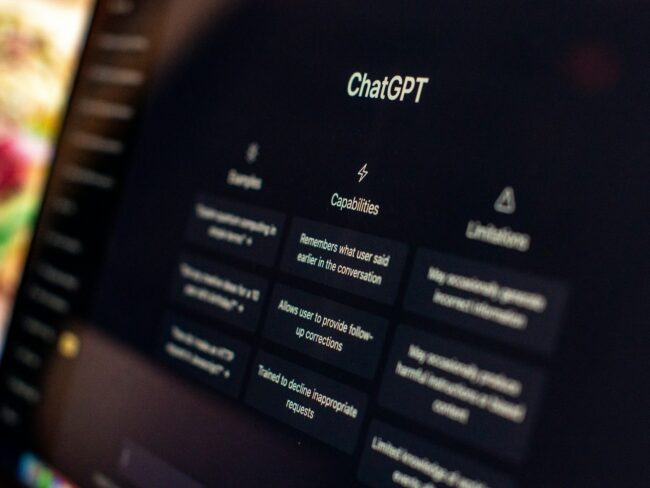AI is transforming how research is conducted across industries – that is a given. From automating routine tasks to uncovering patterns in complex data, AI offers powerful tools that can boost efficiency and insight.
This is, for all intents and purposes, great news for any researcher or research agency.
However, it comes with a caveat – education.
Most agencies recognise the opportunities that come with research-focused AI. Things like faster data analysis, improved accuracy, and innovative services are often available. People are often wary of the steep learning curve, limited resources, and uncertainties around implementation.
While most people have a little bit of knowledge about things like Chat GPT, or using the AI function of a piece of software they’ve used as part of their tech stack for a while, introducing a brand new AI-driven tool into the whole research process can be intimidating. It can feel like extra administration, time spent getting focused, and even just trying to understand what impact it will have.
There are many reasons that using AI is going to be beneficial in the long-run, this guide hopes to complement ith with real life examples of how the researcher can skill-up, encourage their agency to do the same, and also what to do when it’s met with resistance (along with some resources to use along the way).
TL;DR: AI in research is here to stay, but learning it can feel overwhelming. This guide helps researchers tackle the learning curve with:
- Why AI matters in research agencies (and why you’re not behind).
- How to overcome common AI learning barriers (time, cost, complexity).
- Practical steps & free resources to start using AI today.
- Why experimenting with AI now keeps you competitive.
Where AI Adoption Stands in Research Agencies
Many researchers worry about falling behind as AI evolves. In fact, 46% of employees fear their skills will be obsolete within five years due to AI, and 29% think it could happen even sooner. At the same time, lack of time and inadequate training are real barriers. The good news is that you’re not alone: even in the insights industry, over half of firms have not yet used AI in core tasks like data collection or reporting. In fact, nearly 50% of workers say they want more formal AI training and see it as the best way to boost adoption, but many aren’t getting enough support from employers, as reported by McKinsey.
Many industry leaders encourage starting small and experimenting. A recent UK research industry report emphasised keeping the “human in the loop” and “embracing experimentation” when adopting AI. These are solid insights, and using AI in simple, practical ways can already yield benefits. Researchers have found that spending about 10 hours using AI on tasks you care about is enough to get a feel for how it fits into your work.
What Are The Challenges To Learning AI For Researchers and Agencies?
With everybody, there will likely be obstacles in the way. Sometimes these are simple, and other times researchers and agencies can feel spread to thin.
We break down some of the most common objections when it comes to AI.
“There’s Too Much to Learn”
Problem: AI can feel overwhelming, especially with rapid developments and new tools constantly emerging.
Solution: Start small. Rather than trying to master everything, focus on one AI tool or function that directly benefits your workflow. Pick a single use case, things such as summarising qualitative data or automating repetitive tasks, and build from there.
“My Boss Won’t Pay for Training”
Problem: Many agencies expect employees to upskill independently without formal training support. Or they simply don’t see the need to.
Solution: Find and use free and affordable learning resources (see below). Suggest internal knowledge-sharing sessions to encourage collective learning. If budget constraints are an issue, frame AI training as a business investment by demonstrating efficiency gains.
“Everything Moves Too Fast”
Problem: AI developments evolve rapidly, making it difficult to stay up to date.
Solution: AI evolves fast, but doing nothing guarantees you fall behind. Focus on industry-relevant updates rather than tracking every change.
“I’m Too Busy”
Problem: Researchers already juggle heavy workloads, making AI learning feel like an added burden.
Solution: Integrate AI learning into existing routines. Listen to AI-focused podcasts during commutes or skim AI-related newsletters with morning emails. Small, consistent exposure adds up over time.
What Are Some Resources For Researchers To Learn More About AI?
If you decide to go the self-paced route, or you want to share some resources and insights with your team, then we’ve collected a few resources that can begin to help you with your AI knowledge journey.
Podcasts: Learn on the Go with AI and Research Insights
One of the easiest ways to learn is by listening. These podcasts offer jargon-free discussions on AI’s impact on research. These are perfect for your commute or lunch break:
- MRS “Evidence Talks” (AI Adoption episode) – A podcast by the UK Market Research Society that discusses trends in research. Notably, an October 2024 episode asks, “Where are we now?” with generative AI and “how can small agencies use AI to punch above their weight and win new clients?”. This UK-focused conversation validates that even cautious clients and tiny teams can leverage AI effectively. It’s reassuring to listen to experts sharing how they integrate AI into practice.
- Mintel Little Conversation – “How AI is Supercharging Market Research” – In this episode of Mintel’s podcast (Season 6, Ep. 140, June 2024), data science experts discuss how generative AI can speed up analysis for market intelligence professionals. They tackle questions like fear of being obsolete (FOBO) and give concrete use cases where AI augments a researcher’s work (e.g. faster data analysis, better models).
- Data Gurus Podcast – Hosted by Sima Vasa, this podcast leans into the intersection of data, technology, and the insights industry. Rather than a specific episode, the overarching themes are insights from research industry leaders and often cover topics such as automation, AI, big data, and the future of analytics in business.
Tip: Many podcasts have show notes or transcripts, so if you’re extremely busy, you can skim those for key points. But even half an hour a week of listening can build your understanding over time.
YouTube & Video: Visual Explanations and Webinars
If you prefer visual learning or want to see demonstrations, YouTube has excellent channels and recorded webinars that demystify AI for those involved in qualitative research:
- NewMR Webinars (Ray Poynter’s YouTube channel) – Ray Poynter, a UK research thought leader, hosts the NewMR webinar series, many of which are available free on YouTube. These sessions often focus on AI’s role in market research. For instance, a recent “Future in Focus” panel explored the practical implications of AI in research – from automating analysis to using AI in qualitative research.
Tip: YouTube allows you to watch at 1.25× or 1.5× speed. This is really helpful for squeezing in a 30-minute talk in a shorter time. Also, many webinar recordings have chapters, so you can jump to the sections most relevant to you.
Newsletters & Substacks: Quick Reads and Ongoing Tips
Subscribing to an AI-focused newsletter or Substack can turn learning into a habit. These resources drop bite-sized lessons or insights into your inbox, which you can read in a few minutes:
- “One Useful Thing” by Ethan Mollick (Substack) – Written by a Wharton professor, this newsletter is all about “the implications of AI for work, education, and life.” Mollick has a knack for practical guidance – for example, he suggests that you “use AI enough to get a feel for what you can use it for in your area of expertise,” aiming for roughly 10 hours of hands-on use to integrate it into your workflow. One particularly good newsletter was his “Getting Started With AI” which introduced the concept of “good enough” prompting. He often shares experiments and tip sheets (e.g., “15 times to use AI, and 5 times not to” or how to craft prompts without being an expert).
- Marketing AI Institute’s “This Week in AI” Newsletter” – A popular weekly email read by over 40,000+ marketers and business leaders, this newsletter offers an in-depth rundown of top AI news and how it impacts businesses. Each edition highlights a few big stories or tools and explains why they matter in plain language. By subscribing to this you’ll get up-to-date insights without scouring the web yourself. The analyses often touch on marketing and consumer insights use cases, making it easier to see connections to your work.
- Aida’s Insights: It would be remiss for us not to include Aida’s very own newsletter, targeted specifically at AT researchers in agencies. Each week, our AI Aida looks at some of the trials and tribulations researchers face in this increasingly automated world. It’s great for talking points, reassurance, and ideas on how researchers and agencies can move forward in the AI age.
Tip: Don’t feel pressured to read every newsletter issue. It’s okay to browse subject lines and pick the most relevant ones. The goal is to make learning part of your routine, not another overwhelming to-do.
AI Learning Can Be Manageable For Researchers
AI learning doesn’t have to be daunting. With the right resources, many of them free and structured for busy professionals, you can gradually build AI confidence. Start with small, practical applications, follow relevant updates, and incorporate AI tools into your daily workflow.
Remember that most researchers are still in the early stages of AI adoption; you’re not behind.
Prioritising short, consistent learning sessions are more effective than information overload.
Start by thinking about which parts of your daily life could be made easier and less challenging, and work backwards to what you would need to make things flow more smoothly. Could it be learning about prompt engineering so that AI can extract the right information from your datasets every time? Or is it struggling with bias? Could you get AI to help coach you through identifying and managing this?
AI, particularly a research-focused AI like Aida, is a tool to enhance your expertise, not replace it.
Experimentation is the best teacher. Test AI tools on low-risk tasks to build confidence, find out what you’re good at and what needs improvement, and develop a plan from there.
If your boss, colleagues, or company isn’t investing in those skills, think about how you could learn in your own time. A sacrifice, perhaps, but then you are putting yourself ahead of others and helping to build a case to bring this in to make things better.
Taking small, manageable steps, you’ll develop AI skills without disrupting your workload, staying competitive in an evolving industry.
Now is the time to take control of AI learning because it’s not a question of if AI will be coming into the workplace but how quickly and if you’ll be ready for it.
Want fresh perspectives on AI in research? Aida, your AI research assistant, shares hot takes, smart insights, and the latest trends, helping small research teams stay ahead.



